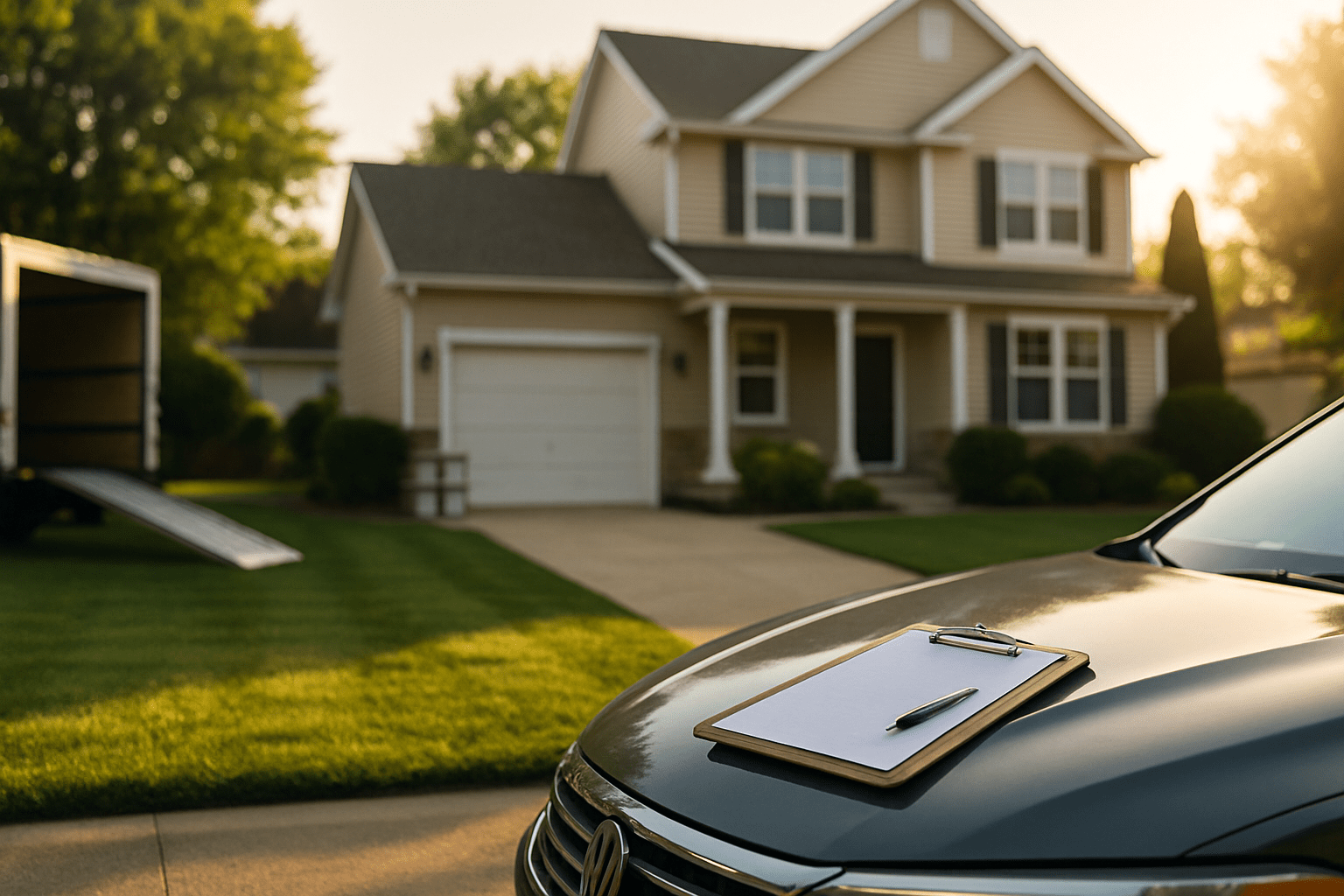Disclaimer: Consumer legal fundings and advances are not loans under applicable financing laws. Rockpoint’s products are non-recourse, meaning if you don’t win your case, you don’t have to pay us back. Receiving financial support in connection with a legal case is typically (and oftentimes incorrectly) referred to as a “lawsuit loan” or “loan.” Therefore, for the ease of search references, these terms may be used in this context to refer to our funding products, but we maintain our separateness from consumer loan products in all legal aspects.
Motor vehicles—cars, trucks, motorcycles, and more—often sit in a tricky spot after someone passes away. Some states make it relatively simple for families to transfer ownership, while others require these assets to pass through the formal probate process. If you’re trying to figure out whether a loved one’s vehicle will need to clear legal hurdles before changing hands, the answer depends on several factors: the state where they lived, how the title was set up, whether there was a will, and more.
Below, you’ll find an overview of how probate might (or might not) apply to a motor vehicle, including ways to sidestep probate altogether, potential complications that might pop up, and how to handle finances if the process drags on.
Why the Probate Process Exists
Probate is essentially the court-supervised procedure that verifies a deceased person’s will, handles any debts or taxes, and then makes sure assets go to the correct heirs. In some states, nearly every item in an estate— from real estate to bank accounts and possibly vehicles—must pass through probate unless prior arrangements say otherwise (like naming a beneficiary or creating a trust). But the actual rules are different in places like Louisiana, which may allow an “affidavit of heirship,” and California, which might require probate unless a transfer-on-death (TOD) is in place.
Yes or No? It Varies by State
Louisiana Example
In Louisiana, the estate’s executor can often skip the full probate process for a vehicle by completing an affidavit of heirship. This affidavit might let you transfer ownership without months of waiting. In other words, if a loved one’s truck is sitting in the driveway, you might not need to wait for a judge to finalize matters—so long as Louisiana’s specific requirements are fulfilled.
California Example
California leans a different way. If someone lived there and owned a car, that car typically goes through probate unless the deceased person arranged a TOD or the vehicle was co-owned with right of survivorship. That’s a fancy way of saying: if the title says “two owners” and one passes away, the surviving owner might automatically become the full owner without probate. But if the car was solely in the decedent’s name and no beneficiary was listed, it might get stuck in the probate pipeline.
Joint Ownership
Another setup you’ll find in many states is joint ownership with survivorship. If the vehicle title clearly states that two or more owners share it “with right of survivorship,” then the surviving owners typically gain full ownership once the other dies, no court intervention needed. This arrangement can be helpful if, say, a spouse has been using the car all along and wants to keep it after the co-owner’s death.
Planning Ahead to Avoid Probate for Vehicles
Some people take steps before passing away to ensure cars or trucks bypass probate entirely. If there’s enough time for planning, any of these strategies might help:
-
Co-Ownership With Survivorship
Placing a child, spouse, or other family member on the car title ensures the vehicle passes directly to that person upon death—no judge involved.
-
Transfer-On-Death Designation
Many states let you list a TOD beneficiary directly on the title. That means once the owner dies, the beneficiary can re-title the vehicle with minimal hassle.
-
Living Trust
Placing a car into a living trust is more common for higher-value vehicles or classic cars. The trust can specify who inherits, sidestepping probate.
-
Gifting Vehicles in Advance
Sometimes, an older family member decides to gift a vehicle while still alive, effectively removing it from the probate equation. This strategy also ensures you see who gets it right away.
Possible Complications If a Vehicle Hits Probate
-
Family Disagreements
If relatives can’t agree on who should inherit a car, this dispute could slow down the court process. One sibling might feel entitled to a particular SUV, while another believes it should be sold and the proceeds split.
-
Estate Debts
If the decedent owed substantial debts or taxes, the executor might have to sell the vehicle(s) to settle those bills. That means even if someone wants the car, probate might force its sale to pay creditors.
-
Rigid State Rules
Some states simply don’t let you avoid probate for certain assets, cars included, unless specific actions were taken beforehand. That can cause unexpected red tape.
These issues not only prolong the court proceedings but can leave potential heirs in limbo. Someone who planned on selling a car for quick cash might have to wait months, leaving them in a tough financial spot in the meantime.
Covering Costs If Probate Drags On
When a vehicle you hoped to inherit (and maybe sell) is stuck in probate, immediate bills may keep piling up. This situation can be stressful—especially if that car’s sale proceeds were earmarked for funeral expenses or overdue mortgage payments. Some families turn to high-interest loans, racking up credit card charges while waiting for probate to finalize.
That’s where probate funding could be an option. Providers like Rockpoint Probate Funding can offer a portion of your expected inheritance as an advance. Later, once probate closes, you pay the lender back from your share of the estate. This path offers some financial breathing room without dealing with monthly loan repayments or steep interest rates.
Figuring Out Next Steps
-
Check State Laws
The first move should be reviewing your state’s regulations—or better yet, consulting a local attorney who understands vehicle transfers in your region. Remember that what works in Louisiana might not hold up in California, and vice versa.
-
Gather Vehicle Documents
Locate the car’s title, registration, and any mention of it in the will. If the vehicle is jointly titled or has a TOD, that can drastically cut the probate wait time.
-
Speak With the Executor
The executor or administrator of the estate is the court-recognized individual who manages the probate process. Ask if there are any known debts that might affect whether the vehicle stays in the family or gets sold off to settle liabilities.
-
Consider Funding Options
If you stand to inherit the vehicle but face financial hurdles now, exploring something like a probate cash advance might help you cover pressing expenses until all the legalities are settled.
Key Takeaways
- Cars may or may not require probate, depending on your state’s laws, the ownership details on the title, and whether any special designations—like TOD or joint ownership—are in place.
- Planning ahead is the best defense. If a loved one sets up these designations or trusts in advance, the vehicle transfer can happen almost automatically.
- If probate is unavoidable, you might be waiting a while before you can officially own or sell that vehicle. During that gap, consider an inheritance advance if you’re strapped for cash.
Ultimately, the question, “Do motor vehicles go through probate?” doesn’t have a universal yes or no answer. It depends on specifics like where you live and how the vehicle title was originally arranged. But by looking into the relevant state laws, organizing paperwork, and staying in touch with the executor, you can avoid getting stuck in an endless loop of legal hurdles. And if you find yourself in financial limbo during this waiting period, you can explore probate funding to help you stay on solid ground.








